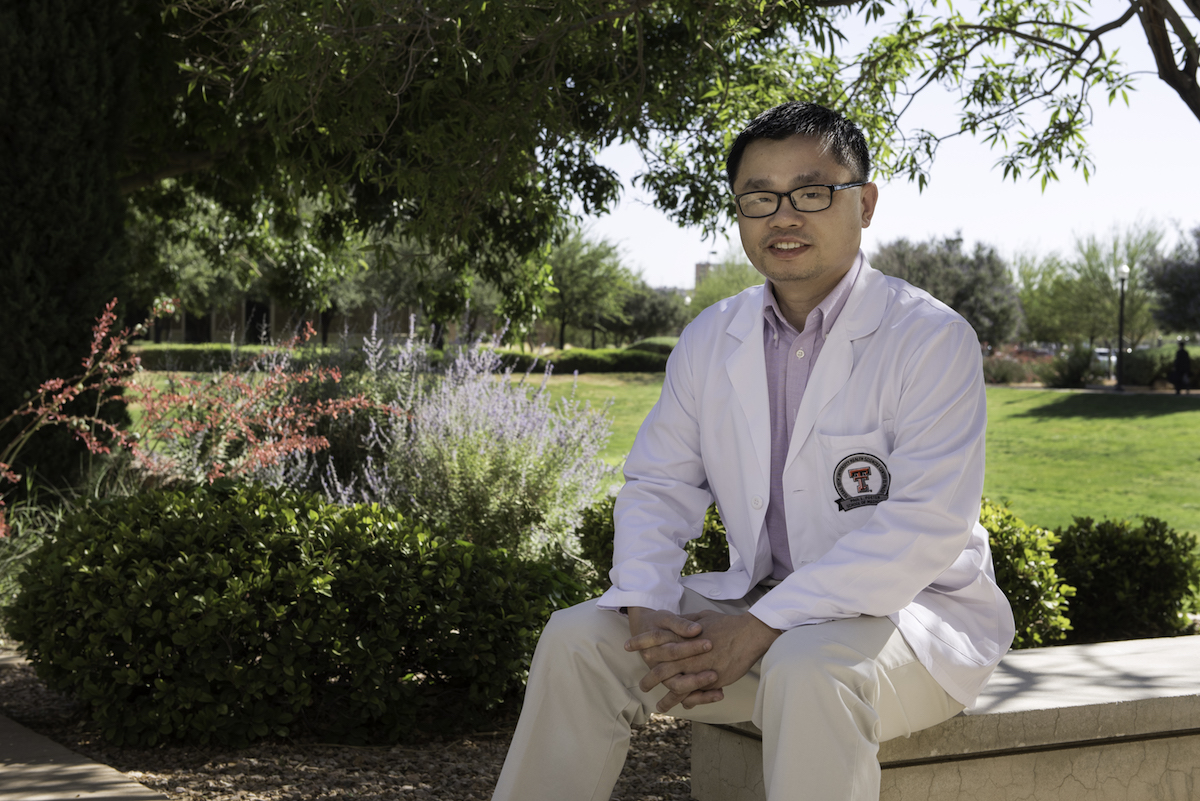Risheng Ye

Please tell us a little bit about your background, including where you are from and how you decided to move to El Paso.
I was born in China and came to the U.S. for my Ph.D., studying biochemistry and molecular biology. I worked as a biomedical scientist at UT Southwestern Medical Center and after a while decided to go to medical school in El Paso.
Have you always wanted to be a doctor? What are you currently studying?
My motivation to become a doctor developed during my time as a postdoctoral researcher. I was doing medical research, and decided I wanted to directly help patients and feel more useful in this setting.
I am interested in practicing primary care. I feel like I could do a good job in this field because I am confident and comfortable talking to patients and helping to identify their needs. Meanwhile, because I have a background in research and continue to do this, I will pursue opportunities that allow me to explore the research side.
What attracted you to TTUHSC El Paso?
I remember my interview here. My first impression was that this was a booming school and that there was a lot of development, which meant there was change and opportunity here. I was very impressed by the clinical simulation centers and the school design itself.
I was also impressed by the curriculum, which was different from most schools in the country. With a new curriculum, the setting is good to learn medical knowledge in a more efficient and effective way. By the end of the day of my interview, after talking to students, faculty, and seeing the school, one thing I could appreciate were the collaborative efforts. Students are not competing, but instead they were working alongside each other. This is a very good environment to learn, since it works this way in hospitals.
What year of medical school are you currently in? Tell us about your first year.
I am in my third year of medical school. Before my first year, I moved to a new city and was exposed to a completely new culture. There were a lot of things to learn. My family was in Dallas, and after learning more and more about the city, I became interested in border culture. I myself am a new immigrant to the U.S. and am interested in learning different cultures and serving patients from different backgrounds.
What makes the Foster School of Medicine stand out?
Collaboration. For the first two years, we did pass/fail grading, and I think that’s a good setting to make students work together. We share useful resources with our classmates and that helps everyone.
I also like how we focus on clinical-based learning. We talk to patients that simulate the daily lives of medical professionals. I was able to talk to patients and figure cases out. Also, the faculty and staff are extremely professional and helpful. They provide constructive feedback to us so we feel comfortable talking to patients in real situations.
Were you involved in the student-run clinic? Is there a moment or story that stands out as being memorable during your time at the clinic?
Yes, I had the opportunity to work at the RotaCare Clinic and Baptist Clinic in El Paso. There we had the chance to interact with patients in the community and learn from the senior students we were following.
What do you hope to achieve through the Foster Scholarship?
This scholarship provided me more opportunity to choose the specialty that I like and alleviates the financial burden. I won’t have to worry about student loans and can focus on figuring out what kind of physician I can be to better serve the region.
Do you plan to stay in El Paso and practice (after residency / during)?
I will apply to residencies in El Paso because I enjoy this city. My wife is a product safety scientist in Dallas, where my other family members live, so that will weigh in where I apply. Family is incredibly important to me.
What do you love most about El Paso?
The people in El Paso are extremely friendly. My impression on the first day was that everyone was so nice to me on the street, in the school, and I feel very welcomed. Even the patients are nice; they understand that they need help and do their best to work with doctors. The Hispanic culture, of course. There are a lot of great things about that. It’s fascinating.
Ten years from now, what would you like to see at the Paul L. Foster School of Medicine?
I would expect the school to grow and have more students. Everything in the school is going in a good direction, and I think the school will be able to produce more excellent physicians.
